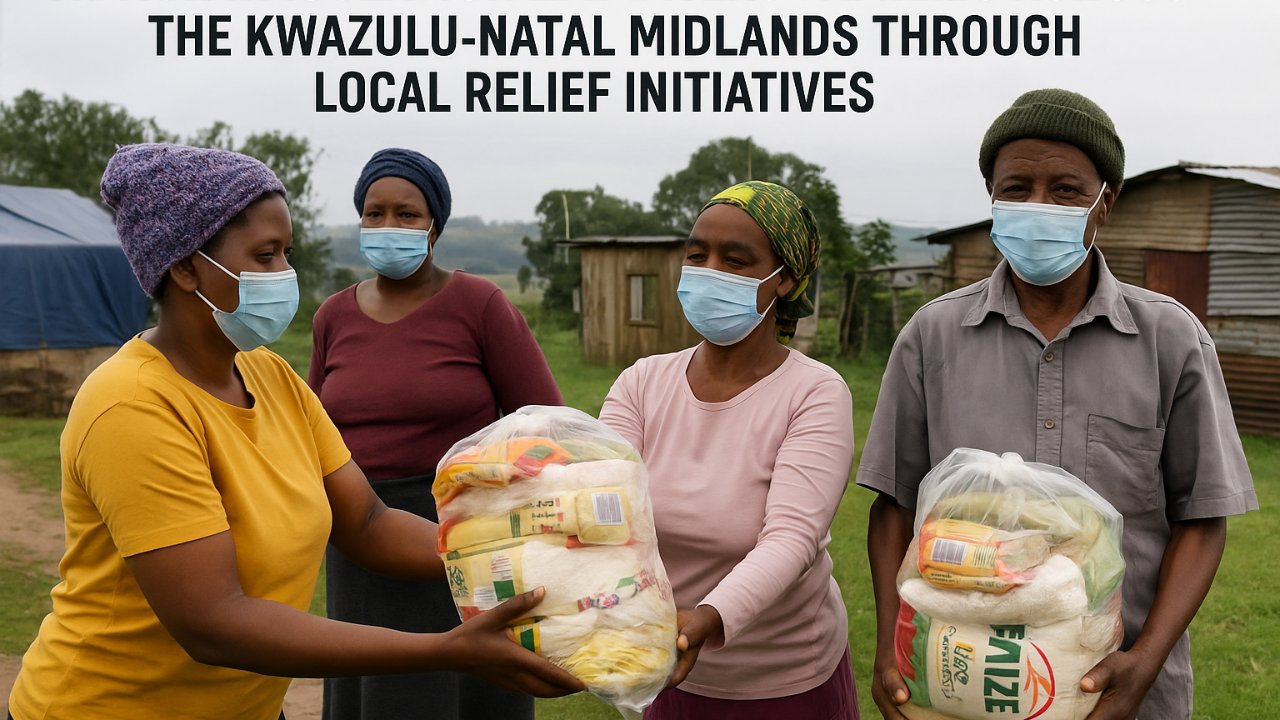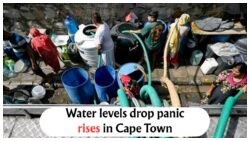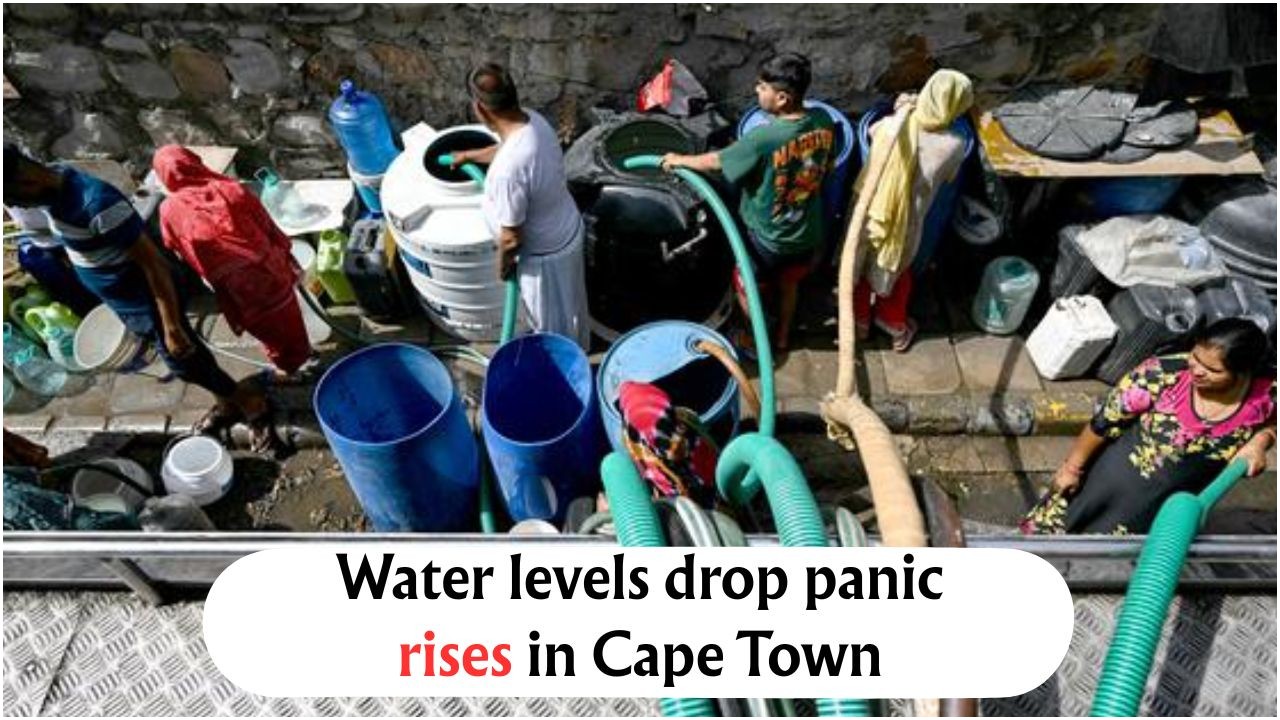Action in Isolation – In the heart of South Africa’s KwaZulu-Natal Midlands, a quiet revolution is underway—powered not by institutions or large-scale NGOs, but by small, community-driven acts of compassion. These “actions in isolation,” carried out by local individuals and grassroots groups, are providing critical relief and empowerment to families in need. Amid economic hardship, unemployment, and food insecurity, these self-initiated programs are proving that hope can emerge from the smallest efforts.
Understanding the Context: KwaZulu-Natal Midlands
The KwaZulu-Natal Midlands is a region known for its natural beauty, farming economy, and close-knit communities. However, many rural and peri-urban areas across the Midlands face deep challenges:
- High unemployment rates
- Lack of access to healthcare and clean water
- Food insecurity
- Gender-based violence
- Limited educational infrastructure
Traditional relief programs often struggle to penetrate these remote areas, leaving a gap that local residents are now stepping in to fill through independent action.
 Urgent Storm Surge Alert for Coastal SA: Eastern Cape and KZN Residents Advised to Seek Safety
Urgent Storm Surge Alert for Coastal SA: Eastern Cape and KZN Residents Advised to Seek Safety
What Is “Action in Isolation”?
“Action in isolation” refers to individuals or small groups taking independent, community-focused steps to bring positive change. These efforts are not always tied to government grants or international aid. They include:
- Distributing home-cooked meals to hungry children
- Donating second-hand clothes to neighbors
- Starting small food gardens to feed families
- Offering informal tutoring to schoolchildren
- Using personal savings to fund medicine for elders
Though isolated in execution, these actions have a ripple effect—creating networks of support that transcend formal aid mechanisms.
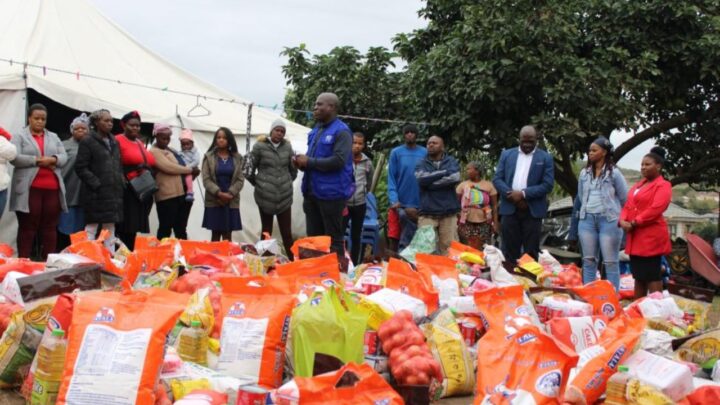
Key Local Relief Initiatives Making a Difference
Below are some notable examples of grassroots relief efforts transforming the lives of families across KwaZulu-Natal Midlands:
1. Community Soup Kitchens
Led by local women’s groups, these kitchens prepare and serve food to dozens of families weekly. The ingredients often come from donated items or small contributions pooled together.
2. Skills Training Circles
Volunteers skilled in sewing, carpentry, or beadwork offer free training workshops. These sessions empower youth and unemployed adults to earn a living through self-employment.
3. Childcare and Homework Clubs
Parents and retired teachers run after-school care centers, where children are tutored, fed, and kept safe. These spaces are vital for working single mothers.
4. Home-Based Care for the Elderly
Volunteers make home visits to elderly residents—offering medicine reminders, physical help, and emotional support. This care is especially critical in regions where clinics are hard to reach.
5. Community Gardens
Unused land is converted into communal vegetable gardens. Residents share the labor and harvest, ensuring consistent access to fresh produce.
Impact: Real Stories of Empowerment
| Initiative | Location | Beneficiaries (Monthly) | Led By | Primary Impact |
|---|---|---|---|---|
| Mama Zulu Soup Kitchen | Richmond | 200+ | Local Women’s Union | Reduces child hunger |
| Langa Skills Circle | Howick | 45 | Unemployed Graduates | Boosts youth entrepreneurship |
| Granny Care Collective | Mooi River | 30+ elderly | Retired Nurses | Improves elderly well-being |
| Garden of Hope | Greytown | 60 families | Church Volunteers | Provides food and employment |
| Ethembeni Study Club | Pietermaritzburg | 80+ schoolchildren | Local Teachers | Enhances academic performance |
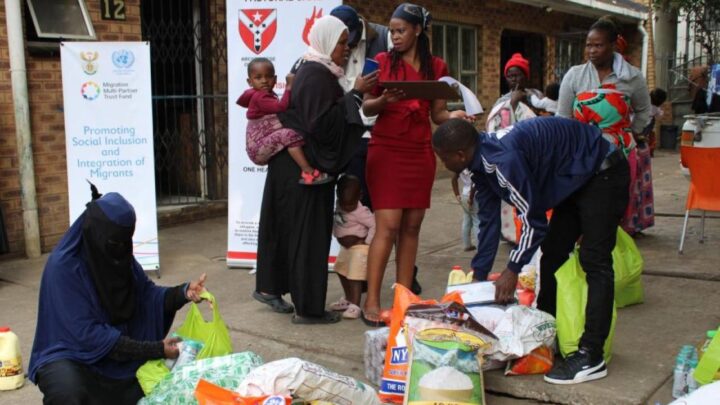
Challenges Faced by Isolated Relief Actors
Despite their noble intentions and real-world impact, isolated actors often face the following obstacles:
- Lack of funding or sustainable donations
- Burnout due to lack of support
- Inadequate access to training or health tools
- No formal recognition or assistance from local government
Still, the resilience of these grassroots heroes keeps them going—fueled by the change they see daily in their communities.
Ways to Support or Replicate These Efforts
Individuals or small communities looking to support or replicate these models can:
- Offer small monthly donations to local initiatives
- Volunteer time for cooking, tutoring, or visiting elders
- Share knowledge or teach valuable skills
- Donate books, clothes, or tools
- Help publicize efforts via social media and local newspapers
Even the smallest contribution—time, money, or resources—can multiply impact exponentially.
Why These Actions Matter: The Bigger Picture
The most inspiring part of these efforts is their organic nature. No outside force mandated these acts. The community responded to crisis in its own way—by reaching out to one another. These actions:
- Restore dignity to the needy without bureaucratic delay
- Build unity and resilience among neighbors
- Empower women, youth, and elders through responsibility
- Create scalable models of aid that work locally
As more people join these isolated actions, a network of empowerment is being silently stitched together—changing KwaZulu-Natal Midlands one small act at a time.
“Action in Isolation” is proving that sometimes the most powerful solutions emerge not from large-scale organizations, but from the hands of individuals who care. Across the KwaZulu-Natal Midlands, these micro-initiatives are providing real relief, rebuilding dignity, and rekindling hope. By recognizing, supporting, and amplifying these efforts, we can transform isolated goodwill into a connected force for regional progress.
FAQs
Q1. What is meant by “Action in Isolation”?
It refers to individuals or small local groups taking independent steps to support their community without relying on big organizations.
Q2. How can I support local relief efforts in the KwaZulu-Natal Midlands?
You can volunteer, donate supplies or money, share stories, or offer your skills to local groups.
Q3. Do these isolated actions really make an impact?
Yes, many families depend on these small acts daily—for food, education, and healthcare.
Q4. Are these initiatives recognized by the government?
Most are informal and not officially registered, but some get occasional municipal support or recognition.
Q5. Can this model be applied in other regions?
Absolutely. The beauty of this approach is its scalability—it can be adapted anywhere with local leadership and community willpower.
